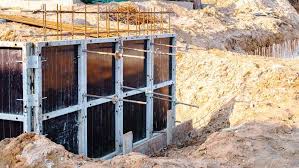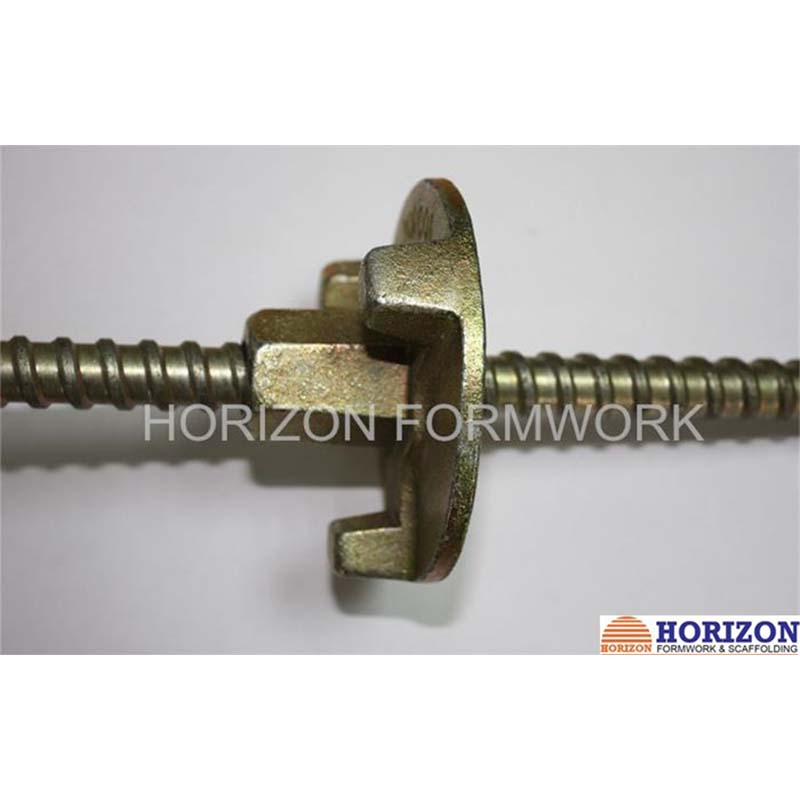Jul . 06, 2025 08:38 Back to list
High-Quality Formwork Material Supplier Reliable Manufacturer & Factory Solutions
- Introduction: Exploring the Importance of Formwork Material in Construction
- Global Market & Data Insights: Formwork Material Industry Statistics
- Technical Advantages: Innovative Developments in Formwork Materials
- Manufacturer & Factory Comparison: Evaluating Leading Production Options
- Customization Solutions: Tailoring Formwork Materials to Project Needs
- Project Case Studies: Real-World Applications & Outcomes
- Conclusion: Driving Future Performance with Formwork Material

(formwork material)
Introduction: Exploring the Importance of Formwork Material in Construction
The selection of formwork material
is a foundational decision that shapes the safety, economy, and efficiency of modern construction. Quality formwork not only provides the necessary structure for concrete to set accurately but also dramatically influences overall project timelines, labor costs, and surface finishes. In a globally competitive construction landscape, builders and engineers are constantly assessing which formwork material to deploy for optimal results. Factors such as reusability, strength, ease of installation, and compatibility with sustainable practices push factories and manufacturers to evolve their offerings continually. As demands increase for innovative formwork systems, the scrutiny on each component's performance intensifies, making knowledge of market trends and technical options more critical than ever.
Global Market & Data Insights: Formwork Material Industry Statistics
Market analysis reveals a substantial shift in the demand for high-performance formwork materials across major economies. According to a 2023 industry report by MarketsandMarkets, the global formwork market value reached approximately $6.2 billion USD and is projected to surpass $8.4 billion USD by 2028, marking a CAGR of 6.2%. The Asia-Pacific region dominates consumption, accounting for over 45% of global usage, but the fastest growth is noted in North America, fueled by both residential and infrastructural expansions.
The transition from traditional timber formwork to engineered systems like modular plastic and aluminum formwork is particularly striking. Data indicates that metal and plastic formworks now represent over 41% of material usage in major metropolitan projects globally. This migration is driven by the reduction of on-site waste, improved safety standards, and increased requirements for durable, multi-cycle use formwork.
| Material Type | Market Share (%) | Average Reusability (Cycles) | Market Value (USD Billion) |
|---|---|---|---|
| Timber | 38 | 5-8 | 2.36 |
| Plastic | 17 | 50-100 | 1.05 |
| Aluminum | 24 | 100+ | 1.49 |
| Steel | 16 | 200+ | 0.99 |
| Others | 5 | Varied | 0.31 |
The data demonstrates a sharp advantage for engineered formwork solutions, with reusability and sustainability as major purchasing criteria. This shift sets the stage for technical advancements and a competitive marketplace among global suppliers and formwork material factory networks.
Technical Advantages: Innovative Developments in Formwork Materials
Today’s leading formwork materials are a far cry from traditional single-use timber. Significant advancements have been made in material formulation and structural engineering, delivering products that boost project sustainability and precision. For instance, high-density polymer formwork achieves low water absorption and high abrasion resistance, extending product lifespans to over 100 cycles in optimal field conditions.
- Modular Aluminum Systems: Lightweight yet rigid, allowing rapid assembly and reduced labor, with up to 60% time savings vs. timber counterparts.
- Steel Systems: Ideal for large, repetitive structures due to extremely high reusability (>200 cycles).
- Composite Hybrid Panels: Integrate fiberglass mesh and synthetic options for intricate architectural requirements, offering flexibility and minimal thermal deformation.
- High-Performance Coatings: Prevent corrosion and concrete adherence, enhancing surface smoothness and minimizing finishing costs.
Technological partnerships between formwork material manufacturers and design consultants have led to custom-fit, prefabricated systems delivered directly to the construction site, slashing set-up times by up to 50%. Notably, the integration of RFID tagging into modular formwork enables comprehensive asset tracking and lifecycle management—an important asset for large contractors managing fleets of formwork components across multiple projects.
Manufacturer & Factory Comparison: Evaluating Leading Production Options
With the proliferation of global supply chains, not all formwork material factories and manufacturers bring equal standards to the marketplace. Comparing key suppliers sheds light on the differentiators shaping procurement decisions today.
| Manufacturer | Main Product Lines | Max Reusability (Cycles) | Production Capacity (m²/year) | Lead Time (weeks) | Environmental Certifications |
|---|---|---|---|---|---|
| Doka | Timber, Aluminum, Composite | 120 | 1,800,000 | 3-6 | ISO 14001, FSC |
| PERI | Steel, Aluminum, Modular Plastic | 180 | 2,100,000 | 4-7 | ISO 14001 |
| MFE Formwork | Aluminum Modular | 150 | 1,250,000 | 5-8 | ISO 9001 |
| ULMA Construction | Steel, Timber, Hybrid | 160 | 1,470,000 | 4-6 | ISO 14001, PEFC |
| Acrow | Steel, Multi-purpose | 200 | 970,000 | 5-9 | ISO 14001 |
When comparing these formwork material factories, it’s clear that production capacity, range of product offerings, and environmental compliance are crucial variables. The best manufacturers leverage advanced production processes and stringent quality controls to support a wide range of construction challenges—from complex, high-rise developments to repetitive, scalable infrastructure projects.
Customization Solutions: Tailoring Formwork Materials to Project Needs
One of the most compelling advancements in the industry is the increasing availability of fully customized formwork material solutions. Today’s smart factories use CAD-driven fabrication and advanced thermoplastics to create bespoke modules fitted precisely to an architect’s blueprint. Such solutions dramatically minimize field adjustment, aligning perfectly with lean construction methodologies and just-in-time delivery systems.
Key customization capabilities now include:
- Precision Machining: CNC-based module and panel cutting ensures tolerances of ±1mm.
- Surface Treatments: Anti-corrosive and non-stick coatings for longevity and easy cleaning.
- Integrated Building Information Modeling (BIM): Allows seamless integration into digital project workflows, eliminating design conflicts before production.
- Color Coding & RFID Tagging: Improves inventory management and on-site logistics.
- Material Blends: Hybrid panels that balance weight, insulation, and structural strength based on local climate or code requirements.
Whether for curved architectural features, heavy-duty industrial floors, or rapid vertical formwork cycles, the leading formwork material manufacturer will provide tailored material specifications, detailed installation manuals, and modular accessories to guarantee performance and project efficiency at every stage.
Project Case Studies: Real-World Applications & Outcomes
Analysis of completed projects worldwide reflects the profound impact of formwork material selection on safety, quality, and cost control. Recent case studies highlight how strategic partnerships with innovative factories and manufacturers can yield measurable advantages.
| Project | Location | Material Used | Reusability Achieved | Time Savings (%) | Concrete Surface Quality |
|---|---|---|---|---|---|
| East Tower, One Thames City | London, UK | Aluminum Modular | 110 cycles | 45 | Class 1 Finish |
| Puduraya Bus Terminal | Kuala Lumpur, Malaysia | Plastic Composite | 90 cycles | 39 | Class 2 Finish |
| Hudson Yards | New York, USA | Steel Modular | 175 cycles | 56 | Class 1 Finish |
| Qiantan Center | Shanghai, China | Hybrid Timber-Steel | 70 cycles | 33 | Class 2 Finish |
As the case studies indicate, selecting the optimal balance between material type, factory expertise, and customization streamlines site operations and consistently delivers superior construction results. The adoption of engineered formwork systems correlates with significant reductions in both labor needs and finishing costs, further justifying the upfront investment in quality material and supply chain partners.
Conclusion: Driving Future Performance with Formwork Material
In a rapidly urbanizing world, the evolution of formwork material continues to play a pivotal role, shaping the skyline and determining the economic outcomes of major built environments. The strongest advantages now lie with solutions that combine the technical strengths of modular design, sustainability, and bespoke manufacturing support from trusted formwork material factories. By partnering with forward-thinking manufacturers and leveraging proven technical innovations, construction professionals can confidently navigate complex demands and unlock new levels of speed, quality, and environmental stewardship in every project.

(formwork material)
FAQS on formwork material
Q: What is formwork material?
A: Formwork material is the substance used to create temporary or permanent molds for concrete construction. Common materials include wood, steel, aluminum, and plastic. These materials provide support and shape until the concrete sets.Q: How do I choose a reliable formwork material factory?
A: Select a formwork material factory with a good reputation, quality certifications, and industry experience. Check for reviews and past projects as references. It's also important to verify their production capacity and delivery timelines.Q: What products do formwork material factories typically offer?
A: Formwork material factories usually provide plywood, steel, aluminum formwork systems, and related accessories. Many also offer custom solutions tailored to project needs. Contacting the factory directly can clarify their full product range.Q: How can I verify a formwork material manufacturer's quality standards?
A: Reputable formwork material manufacturers hold certificates like ISO 9001 and provide test reports for their products. You can request quality assurance documents and samples. Site visits to inspect production processes also help verify standards.Q: What are the benefits of buying directly from formwork material factories?
A: Purchasing directly from formwork material factories usually ensures better pricing and consistent product quality. Factories can also offer technical support and customization services. This direct communication helps resolve issues quickly.-
Adjustable Heavy Duty Props for Slab Formwork - Strong & Safe Support
NewsAug.22,2025
-
Formwork Spring Clamp Factories: Quality & Bulk Supply
NewsAug.21,2025
-
Premium Ringlock Scaffolding | China Manufacturer & Supplier
NewsAug.19,2025
-
Efficient Table Formwork for Fast Slab Construction & Reusability
NewsAug.18,2025
-
Timber Beam H20 Formwork & Shuttering - Durable & Reliable
NewsAug.17,2025
-
Timber Beam H20: Premium Formwork & Shuttering Solutions
NewsAug.16,2025